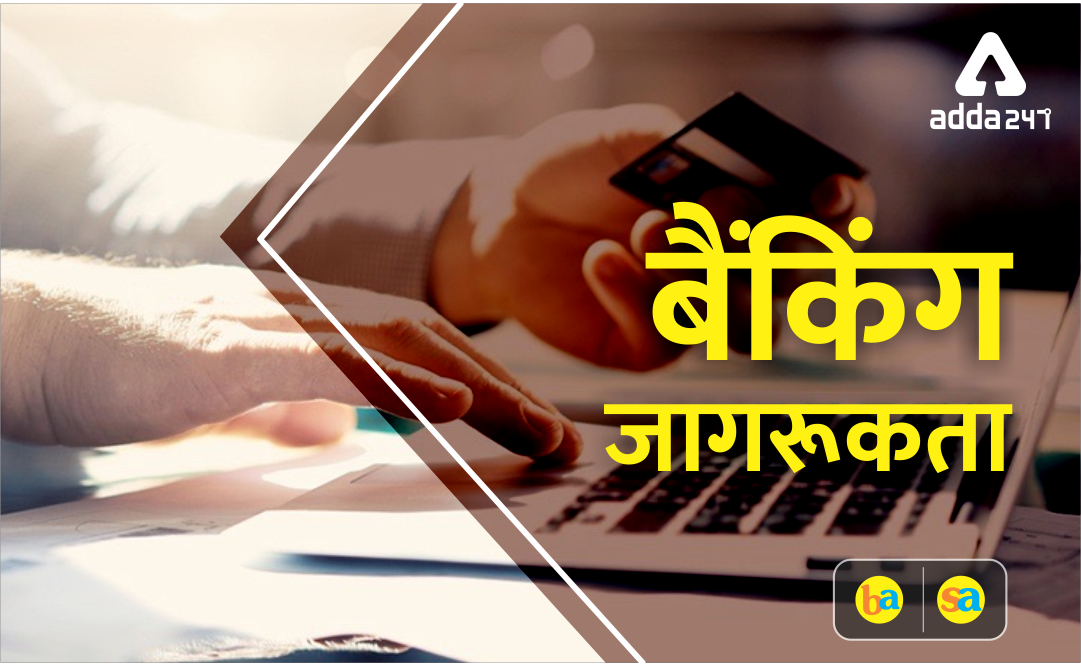
बैंकिंग परीक्षाओं के क्षेत्र में बढ़ती प्रतिस्पर्धा के साथ, अब सभी वर्गों को कुशलता से पूरा करना बहुत महत्वपूर्ण हो गया है। एक विषय जो आपको इन परीक्षाओं में न्यूनतम समय में अच्छे अंक प्राप्त करने में मदद कर सकता है वह है बैंकिंग जागरूकता। बैंकिंग जागरूकता प्रश्नावली न केवल आपको बैंकिंग परीक्षा के सामान्य जागरूकता अनुभाग, बल्कि बैंकिंग भर्ती के व्यक्तिगत इंटरव्यू राउंड में सफलता प्राप्त करने में आपकी सहायता करेगा, आज हम आपको 6 जनवरी, 2020 की प्रश्नोत्तरी प्रदान कर रहे हैं।
Q1. निम्नलिखित में से कौन समझौता/प्रोटोकॉल पाक सुधारों से संबंधित है?
(a) वियना समझौता
(b) बेसल समझौते
(c) नागोया प्रोटोकॉल
(d) कार्टाजेना प्रोटोकॉल
(e) दिए गए विकल्पों में से कोई भी सत्य नहीं है
Q2. बैंकिंग/वित्तीय क्षेत्र में KYC का अर्थ क्या है?
(a) Know Your Customer very well
(b) Know your existing Customer very well
(c) Know your prospective Customer very well
(d) Satisfy yourselves about the customer’s identity and activities
(e) None of the given options is true
Q3. STT का पूर्ण रूप क्या है?
(a) Standard Transaction Tax
(b) Securities Transaction Tax
(c) Securities Transfer Tax
(d) Standard Transfer Tax
(e) None of the given options is true
Q4. भारत में पहला म्यूचुअल फंड कौन-सा शुरू किया गया था?
(a) एसबीआई म्यूचुअल फंड
(b) एचडीएफसी म्यूचुअल फंड
(c) कोटक पायनियर म्यूचुअल फंड
(d) इंडियन बैंक म्यूचुअल फंड
(e) यूनिट ट्रस्ट ऑफ इंडिया
Q5. भारतीय मानक ब्यूरो (BIS) का मुख्यालय कहाँ है?
(a) मुंबई
(b) कलकत्ता
(c) भुवनेश्वर
(d) नई दिल्ली
(e) चेन्नई
Q6. भारत में म्यूचुअल फंड के लिए नियामक कौन है?
(a) FIMMDA
(b) AMFI
(c) RBI
(d) SEBI
(e) IRDAI
Q7. यदि स्टैचुअरी लिक्विडिटी रेशो (SLR) बढ़ा दिया जाता है, तो बैंक की क्रेडिट स्थिति पर क्या प्रभाव पड़ेगा?
(a) यह कम हो जाएगा
(b) यह बढ़ जाएगा
(c) यह अप्रभावित रहेगा
(D) उपरोक्त सभी
(e) दिए गए विकल्पों में से कोई भी सत्य नहीं है
Q8. किसान क्रेडिट कार्ड (KCC) स्कीम किस वर्ष में तैयार की गई थी?
(a) 1996
(b) 1997
(c) 1998
(d) 2000
(e) 1995
Q9. OLTAs के सन्दर्भ में, “CIN” का पूर्ण रूप क्या है?
(a) Challan Identification Number
(b) Challan Identification Notary
(c) Channel Identification Number
(d) Challan Inventory Number
(e) None of the given options is true
Q10. बैंकिंग कंपनी की टियर- I पूंजी के घटकों में शामिल हैं:
(a) परिसंपत्तियों की बिक्री आय से उत्पन्न होने वाले अधिशेष का प्रतिनिधित्व करने वाली आरक्षित पूंजी
(b) भुगतान की गई पूंजी, वैधानिक भंडार और अन्य सामने आने वाला मुक्त भंडार, यदि कोई हो
(c) दोनों (a) और (b)
(d) पुनर्मूल्यांकन भंडार, हाईब्रिड पूँजी और अधीनस्थ आवधिक ऋण,
(e) दिए गए विकल्पों में से कोई भी सत्य नहीं है
Q11. नोट पर लिखे गए “मैं” धारक को …वादा करता हूँ’ कथन का क्या अर्थ है?
(a) बैंकनोट के मूल्य का भुगतान करने की बैंक की बाध्यता अनुबंध से नहीं बल्कि वैधानिक प्रावधानों से उत्पन्न होती है
(b) बैंक नोट के मूल्य का भुगतान करने का दायित्व किसी अनुबंध से नहीं बल्कि वैधानिक प्रावधानों से बाहर होता है।
(c) यह दायित्व न तो किसी अनुबंध के कारण है और न ही वैधानिक प्रावधान के कारण है।
(d) इसका अर्थ है कि आपको मूल्य चुकाने के लिए संप्रभु प्रत्याभूति (sovereign guaranty) है।
(e) दिए गए विकल्पों में से कोई भी सत्य नहीं है
Q12. हाल ही में चेक के कंप्यूटरीकृत क्लियरेंस के लिए शुरू की गई तकनीक का नाम क्या है?
(a) स्वचालित क्लियरेन्स
(b) MICR
(c) स्पीड लाइन सिस्टम
(d) स्पेशल क्लियरिंग
(e) दिए गए विकल्पों में से कोई भी सत्य नहीं है
Q13. कानून व्यवस्था को लागू करने के लिए भारत सरकार के पास कई एजेंसियां हैं। एसएफआईओ उनमें से एक है। SFIO किसके लिए प्रयुक्त होता है?
(a) Serious Fraud Interrogation Office
(b) Serious Fraud Investigation Office
(c) Serious Feud Interrogation Office
(d) Serious Fraud Interrogation Ordinance
(e) None of the given options is true
Q14. MICR कोड एक 9-अंकीय कोड होता है, जो विशिष्ट रूप से ECS में भाग लेने वाले बैंक और शाखा की पहचान करता है। ECS का पूर्ण रूप क्या है?
(a) Electronic Clearing Service
(b) Electronic Clearing Security
(c) Electronic Clearing Source
(d) Electronic Clearing System
(e) Electronic Clearing Solution
Q15. इन कथनों पर विचार करें: –
कथन I – एक रुपए का नोट GOI की देनदारी है।
कथन II – दो रुपये का नोट RBI की देनदारी है।
(a) दोनों कथन सत्य हैं
(b) दोनों कथन असत्य हैं।
(c) कथन I सत्य है, जबकि II असत्य है।
(d) कथन I असत्य है, जबकि II सत्य है।
(e) दिए गए विकल्पों में से कोई भी सत्य नहीं है
SOLUTIONS:
S1. Ans.(b)
Sol. The Basel Accords are three series of banking regulations (Basel I, II, and III) set by the Basel Committee on Bank Supervision (BCBS).
S2. Ans.(d)
Sol. This process helps to ensure that banks’ services are not misused. The KYC procedure is to be completed by the banks while opening accounts and also periodically update the same.
S3. Ans.(b)
Sol. STT is governed by Securities Transaction Tax Act (STT Act) and STT Act has specifically listed down various taxable securities transaction i.e., transaction on which STT is livable.
S4. Ans.(e)
Sol. The mutual fund industry in India began in 1963 with the formation of the Unit Trust of India (UTI) as an initiative of the Government of India and the Reserve Bank of India. Much later, in 1987, SBI Mutual Fund became the first non-UTI mutual fund in India.
S5. Ans.(d)
Sol. The headquarters of Bureau of Indian Standards (BIS) is in New Delhi.
S6. Ans.(d)
Sol. Mutual funds are regulated primarily by Securities and Exchange Board of India (SEBI). In 1996, SEBI formulated the Mutual Fund Regulation.
S7. Ans.(a)
Sol. The Reserve Bank of India raises SLR to control the bank credit during the time of inflation. Similarly, it decreases the SLR during the time of recession to increase bank credit.
S8. Ans.(c)
Sol. The Kisan Credit Card (KCC) scheme was launched in 1998 with the aim of providing short-term formal credit to farmers.
S9. Ans.(a)
Sol. CIN stands for Challan Identification Number.
S10. Ans.(c)
Sol. The elements of Tier I capital include:
i. Paid-up capital (ordinary shares), statutory reserves, and other disclosed free reserves, if any;
ii. Perpetual Non-cumulative Preference Shares (PNCPS) eligible for inclusion as Tier I capital – subject to laws in force from time to time;
iii. Innovative Perpetual Debt Instruments (IPDI) eligible for inclusion as Tier I capital; and
iv. Capital reserves representing surplus arising out of sale proceeds of assets.
S11. Ans.(a)
Sol. As per Section 26 of Reserve Bank of India Act, 1934, the Bank is liable to pay the value of banknote. This is payable on demand by RBI, being the issuer. The Bank’s obligation to pay the value of banknote does not arise out of a contract but out of statutory provisions. The promissory clause printed on the banknotes i.e., “I promise to pay the bearer the sum of Rupees …” is a statement which means that the banknote is a legal tender for the specified amount. The obligation on the part of the Bank is to exchange a banknote with bank notes of lower value or other coins which are legal tender under the Indian Coinage Act, 2011, of an equivalent amount.
S12. Ans.(b)
Sol. MICR code is a code printed on cheques using MICR (Magnetic Ink Character Recognition technology). This enables identification of the cheques and which in turns means faster processing. An MICR code is a 9-digit code that uniquely identifies the bank and branch participating in an Electronic Clearing System (ECS).
S13. Ans.(b)
Sol. The Government in the backdrop of major failure of non-banking financial institutions, phenomenon of vanishing companies, plantation companies and the recent stock market scam had decided to set up Serious Fraud Investigation Office (SFIO), a multi-disciplinary organization to investigate corporate frauds. The Organization has been established and it has started functioning since 1st October, 2003.
S14. Ans.(d)
Sol. An MICR code is a 9-digit code that uniquely identifies the bank and branch participating in an Electronic Clearing System (ECS).
S15. Ans.(a)
Sol. The Rs1 issued by GOI constitute a liability of the government.
इन्हें भी पढ़ें:
- स्टेटिक क्विज
- ‘द हिन्दू’ पर आधारित करेंट अफेयर्स प्रश्न
- साप्ताहिक करेंट अफेयर वन-लाइनर्स : 25 से 30 नवम्बर 2019 : Download PDF
Best 200+ Current Affairs | GA | Banking Awareness for IBPS Clerk Mains 2019
bbb

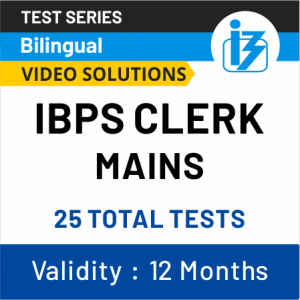
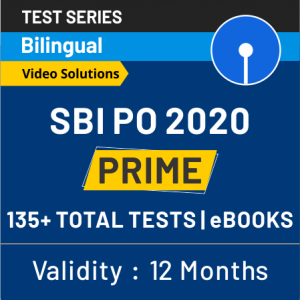

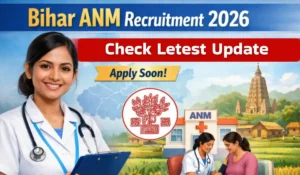 Bihar ANM Recruitment 2026 Update: 8938 ...
Bihar ANM Recruitment 2026 Update: 8938 ...
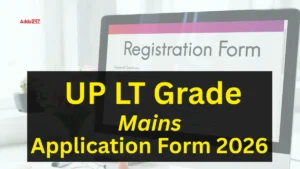 UP LT Grade Teacher Mains Apply Online 2...
UP LT Grade Teacher Mains Apply Online 2...
 Bihar Jeevika Cut Off 2026: इतना हाई गया...
Bihar Jeevika Cut Off 2026: इतना हाई गया...










